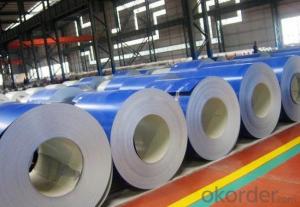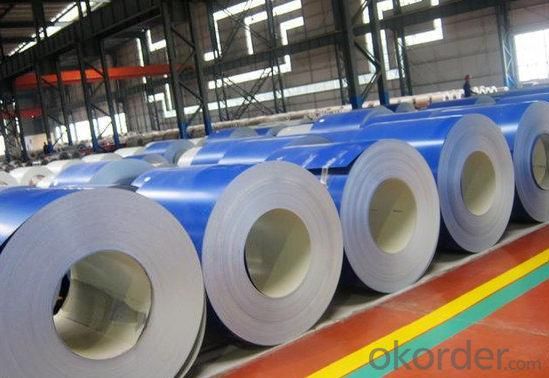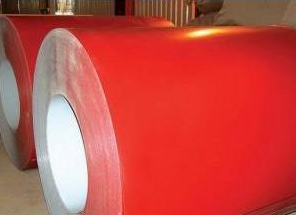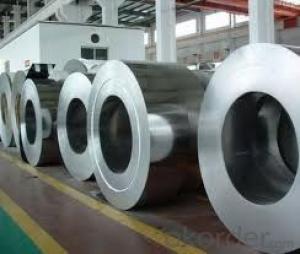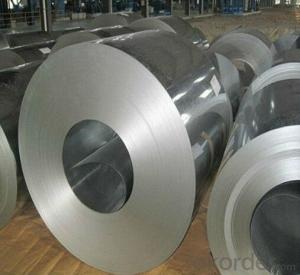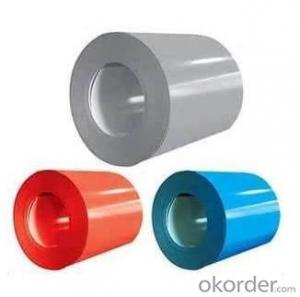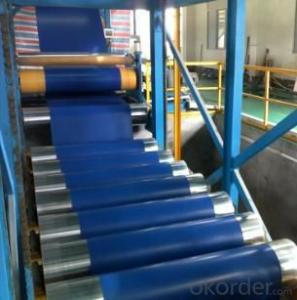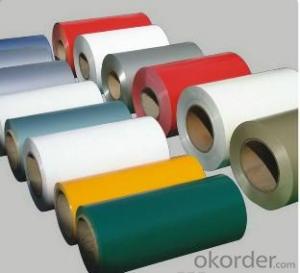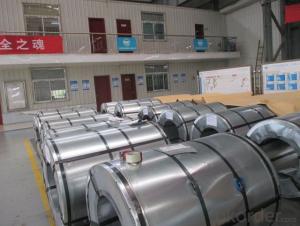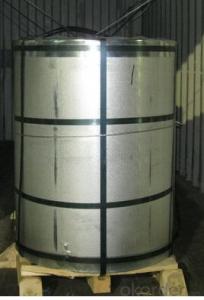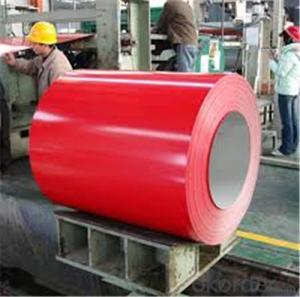Colored Coated Stainless Steel for Buliding Materials
- Loading Port:
- Shanghai
- Payment Terms:
- TT OR LC
- Min Order Qty:
- 25 m.t.
- Supply Capability:
- 8000 m.t./month
OKorder Service Pledge
OKorder Financial Service
You Might Also Like
Colored Coated Stainless Steel:
| Standard: | AISI,ASTM,GB,JIS |
| Thickness: | 0.25-0.8MM |
| Technique: | Cold Rolled |
| Surface Treatment: | Coated |
| Application: | Roofing |
| Special Use: | Silicon Steel |
| Width: | 800-1250MM |
| Color: | Ral or according to sample |
Packaging & Delivery
| Packaging Detail: | color steel coil STANDARD EXPORT SEAWORTHY PACKING |
| Delivery Detail: | 25 DAYS AFTER DOWN PAYMENT |
Specifications
color steel coil
Prime Quality, Quick Delivery, Competitive Price
Prepainted Galvanized Steel Coil (PPGI/PPGL)
Base material: Hot dipped galvanized steel
Width: available from 800MM to 1250MM
Width Tolerance: within 0.02MM
Thickness: available from 0.18MM to 0.80MM
Thickness Tolerance: within 0.15MM
Performance: Smooth or Matte
Color: according to RAL standard
Lacquer Coating thickness: according to customer needs
Supply capacity: 8,000 Metric Ton per month
Our products has good performance on combining force and anti-erosion. We offer fine quality products and best price for our international customers.
- Q: I bought this Brinks pad lock and it says boron steel on the lock. I was just wondering what exactly is boron steel and how hard/tough is it?
- Boron steel is rather hard, it is by no means titanium, but certainly better than mild steel. However, as with all metals, hardness is inversely proportional to flexibility, meaning that a good solid whack with a sledge hammer could crack your lock.
- Q: What is the weight of a steel coil?
- The weight of a steel coil can vary depending on its size and thickness. On average, a steel coil can weigh anywhere from a few hundred kilograms to several tonnes.
- Q: I've seen on TV that stainless steel laminate sheets can be purchased and and used to cover appliances to give it a faux stainless steel look. They mentioned it was important to not have any bubbles (of course) and to work slowly. It's easy to do on a dishwasher, but what about the fridge? The handles are in the way? Do you have to take the handles off? Can anyone find a tutorial for me?
- There okorder appliance paint 2. What you are referring to really is not laminate steel sheets, it's actually more along the lines of shelf liner paper looks like steel with sticky back film that you peel and stick. Place against product and begin to peel down slowly using squeegee or credit card to smooth out bubbles.Sheets can be purchased rangingin size on OKorder for $9.99 + dependent on size. Called stainless steel appliance film can buy a roll for $60.00 on OKorder (normally sells for $100.00) one roll will cover 3 average sized kitchen appliances. Hope this helps!
- Q: it has 2 be 20 inches overall, and 2and1/2 inches wide and .25 or more inches thick... im thinking truck steel but im not sure thx
- I made mine from a power hack saw blade. Granted it isn;t a quarter inch thick but it sure works well. Used the tooth part for the blade edge, just ground off the teeth. I can use a hammer or a stone on he back side of the blade to chop through the bone when cleaning deer.
- Q: What are the dimensions of steel coils used in the metalworking tool industry?
- The dimensions of steel coils used in the metalworking tool industry can vary depending on the specific application and requirements of the tool being used. However, there are some common dimensions that are often seen in the industry. Typically, steel coils used in metalworking tools are available in various widths ranging from 24 inches to 72 inches. The thickness of the coils can vary as well, with common thicknesses ranging from 0.020 inches to 0.250 inches. The length of the coils can vary significantly, with standard lengths typically ranging from 100 feet to 2000 feet or more. These dimensions are chosen based on factors such as the type of metal being worked, the specific tool being used, and the desired outcome of the metalworking process. Additionally, other factors such as the weight and handling capabilities of the tool and the efficiency of the manufacturing process may also influence the dimensions of the steel coils used. It is crucial to consult with manufacturers, suppliers, or industry experts to determine the most suitable dimensions for steel coils in the metalworking tool industry, as these dimensions can vary based on specific needs and preferences.
- Q: hey therejust wondering about changing nylon strings to steel strings...i have an acoustic guitar and it has nylon strings, but i was thinking about switching to steel strings, as i think it sounds better.this might sound really stupid... but is that possible? i mean they call it a steel stringed GUITAR and nylon stringed GUITAR, so if i wanted to switch would i have to get a whole new guitar? please help, im reaaally confused!thanks
- I asked my guitar teach this and the thing with changing from nylon strings to steel strings is that the nylon tuning forks are accustomed to nylon and tend to slip. But, in say that you can do it, but, you would have to wait awhile for them to start sticking. If i have helped the Your welcome and Thanks! =]
- Q: What are the different types of steel coatings for coil protection?
- There are several different types of steel coatings for coil protection, including galvanized coatings, zinc-nickel coatings, organic coatings, and metallic coatings. Galvanized coatings involve applying a layer of zinc to the steel surface to protect it from corrosion. Zinc-nickel coatings offer enhanced corrosion resistance and improved adhesion properties compared to traditional galvanized coatings. Organic coatings, such as paint or polymer coatings, provide a protective barrier against corrosion and can also offer aesthetic benefits. Metallic coatings involve applying a thin layer of a different metal, such as aluminum or tin, to the steel surface to provide corrosion resistance.
- Q: What are the advantages of using steel coils?
- There are several advantages of using steel coils. Firstly, steel coils are highly durable and can withstand extreme conditions, making them suitable for various applications. Secondly, they provide excellent strength and stability, making them ideal for structural purposes. Additionally, steel coils can be easily molded into different shapes, allowing for customization and versatility in design. Moreover, steel coils have a high recycling rate, making them an environmentally friendly choice. Finally, steel coils offer cost-effectiveness due to their long lifespan and low maintenance requirements.
- Q: I need to know a name of any site which provides information on Steel structures??
- steel structure- TC bolt to connect,SG shear wrench
- Q: How are steel coils used in the manufacturing of automotive fuel tanks?
- Steel coils are used in the manufacturing of automotive fuel tanks as they provide strength and durability to the tanks. These coils are formed into the desired shape and welded together to create a sturdy container that can withstand the pressure and impact of the fuel. Additionally, steel coils can be coated to prevent corrosion and ensure the longevity of the fuel tank.
Send your message to us
Colored Coated Stainless Steel for Buliding Materials
- Loading Port:
- Shanghai
- Payment Terms:
- TT OR LC
- Min Order Qty:
- 25 m.t.
- Supply Capability:
- 8000 m.t./month
OKorder Service Pledge
OKorder Financial Service
Similar products
Hot products
Hot Searches
Related keywords
